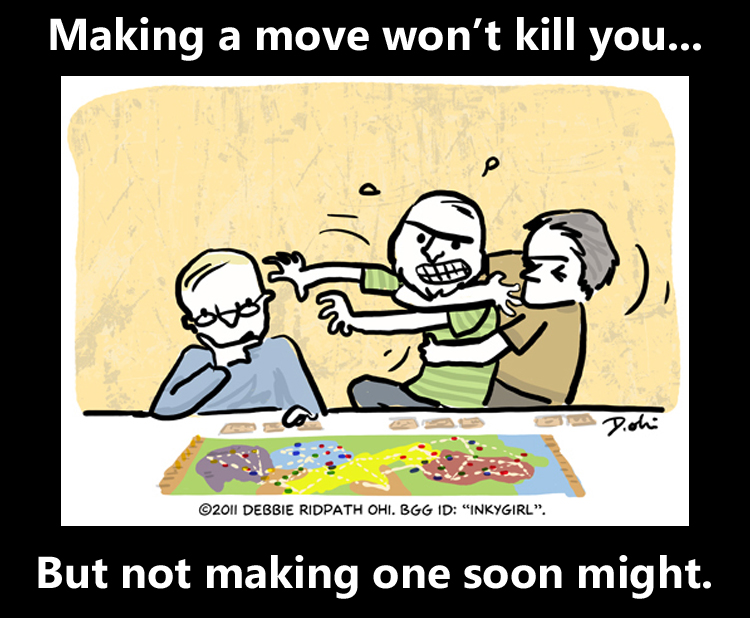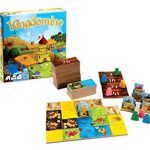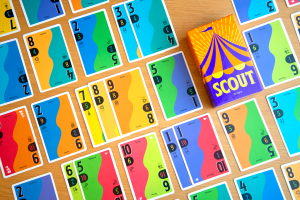
Like any hobby, board gaming can create a a subculture of language to help describe the nuances of the hobby, however, this can leave outsiders a little confused. Here a small list of terms to help you sound like you know what you are talking about…
Abstract – A simple, low or zero luck game with little or no theme e.g. Chess, Hive
Ameritrash – Games developed in or inspired by American games from 70’s and 80’s that emphasized a strong theme, lots of player to player conflict and a healthy dose of luck e.g. Axis and Allies, Cosmic Encounter.
Analysis Paralysis – A state in which a player takes a long time on their turn because they are unable to decide what to do beause they are trying to maximize their turn or concered about making a mistake. It is most common in games with a lot of choices.
Balanced – a game that allows similar or different starting situations to players and manages to maintain that state through the game, giving players an equal chance of winning.
Broken – a game that can be solved or have only one dominant path to victory, or where poor play can lead to victory e.g. Tic Tac toe or the Australian Occupation in Risk.
Dry – A game whose mechanics dominates its theme i.e. feels a little abstract.
Elegent – A game which seems to have the perfect amount of rules and flows very easily. Its also offer lots of strategy and options e.g. Splendor, Lanterns
Euro – A game inspired by German style games which feature, low luck, low conflict and no player elimination in a reasonable time frame.
Fiddly – Games that require excessive part manipulation or math which takes away from the strategic enjoyment of the game e.g. Through the Ages 1st edition, Arkham Horror
Group Think – A state where a specific set of people begin to play a game a certain way, believing there is a dominant way to win it.
Kingmaking – where a player does specific actions to deliberately cause a player to win or lose. A poorly designed game can also create inadvertent Kingmaking situations that forces a player to decide a winner.
Language Independent – games that have no text anywhere on the game, using symbols to represent the actions to take e.g The Voyages of Marco Polo
Light/Heavy – A Scale that describes the complexity and thinking involved in a game. Light, being low rules and simple decision making and heavy having many rules and complex decisions e.g. Ticket to Ride -> Terra Mystica
Mechanic – A part of a games rule system e.g. roll and move, worker placement
Points Salad – A game that has lots of ways in which to gain points, making it hard to focus on one specific strategy e.g. Castles of Burgundy, Tokaido
Quarterbacking – A situation in co-operative games where one player dominates the groups turns and tries to dictate the groups decisions. Most common in games with open information like Pandemic.
Rules Lawyer – a player who insists on the literal interpretation of every rule (usually to the determent of other players) or someone who is well versed in the nuances of all the rules in a game.
Turtling – A game state in map based combative games, where a player will build up a huge defensive force to deter other players from attacking them. Usually seen as a very boring way to play.





